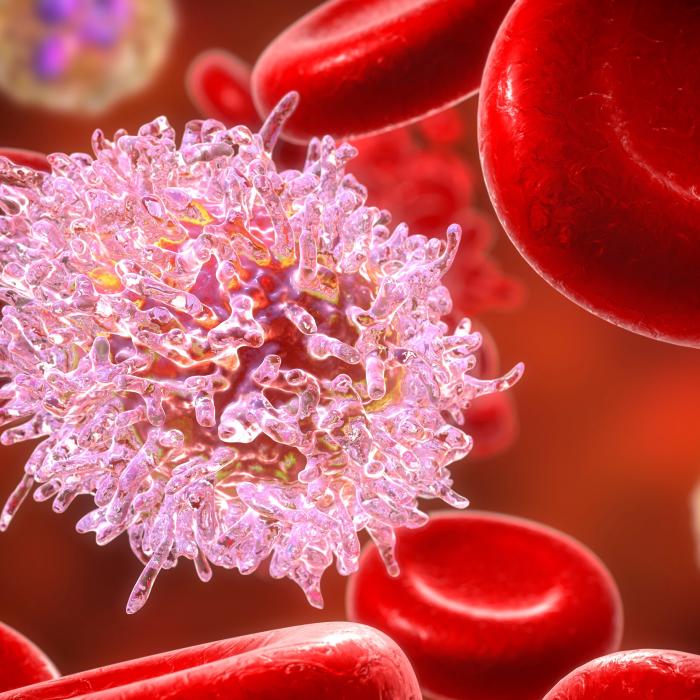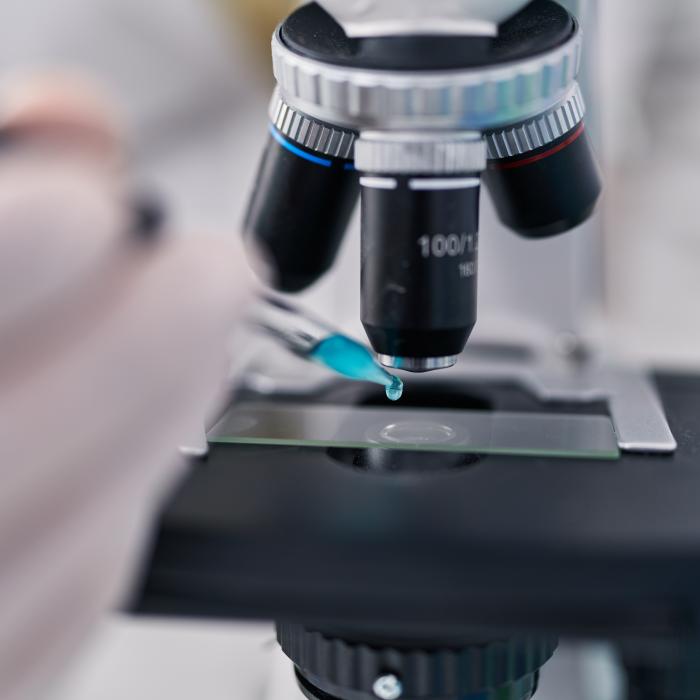Monday Lunch Live
STING agonists for therapy of p53 mutant blood cancer
10 February 2025.
Patients with blood cancers related to mutations of a gene, p53, often face grim prognoses due to limited treatment options. Drugs like Venetoclax (BH3-mimetic drugs), which is TGA approved for treatment of certain blood cancers, have shown promise, but require functional p53 for optimal efficacy.
By first understanding why p53 is necessary for optimal BH3-mimetic functionality, we have developed an innovative therapeutic approach that could revolutionise treatment for aggressive, p53-mutant blood cancers.
We discovered that combining BH3-mimetics with drugs called STING agonists is a one-two punch against p53 mutant blood cancers that can’t be killed by BH3-mimetics alone.
This novel therapy has been validated in preclinical models and shows incredible potency in blood cancer subtypes with no current effective treatment options, including extranodal natural killer/T cell lymphoma (ENKTL) and p53-mutant acute myeloid leukemia (AML).
Importantly, STING agonists have already been shown to be safe in humans, paving the way for rapid clinical translation.
This session will illustrate how basic science can lead to potential clinical breakthroughs. Learn about the mechanistic insights that informed this approach, and hear firsthand about collaborations between WEHI and The Royal Melbourne Hospital to fast-track these findings into potential life-saving treatments.
Chair
A/Prof Gemma Kelly
Laboratory Head, Blood Cells and Blood Cancer, Walter and Eliza Hall Institute (WEHI)
Gemma's laboratory uses cutting edge molecular and cellular biology techniques to identify vulnerabilities in leukaemia and lymphoma cells that could be exploited for cancer therapy.
Through her research projects Gemma investigates the contribution of key cellular genes that control proliferation and cell death for the growth and chemosensitivity of both normal and malignant cells
Speakers
Dr Sarah Diepstraten
Senior Research Officer, Walter and Eliza Hall Institute (WEHI)
Sarah is a Victorian Cancer Agency Early-Career Research at WEHI. Over the past five years, her work has identified genetic factors which confer resistance to BH3-mimetic drugs in blood cancers. In recognition, Sarah has received the WEHI ‘Best Postdoc Seminar’ Prize, WEHI Kellaway Award, and New Directions in Leukaemia Research EMCR Award.
Sarah's research has recently culminated in the identification and development of a novel combination therapy which is highly effective in preclinical models of p53-deficient blood cancer (published in Cancer Cell 2024).
Resource details

This course is brought to you by


